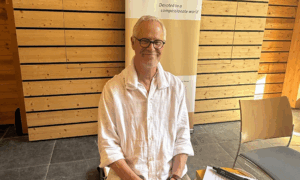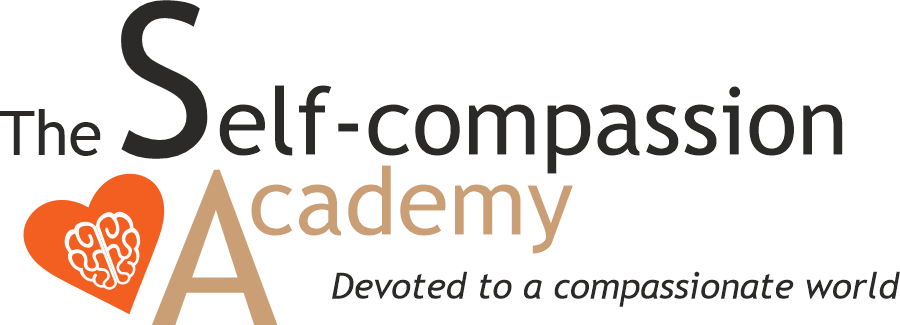Learn self-compassion. Deepen your practice. Become a teacher.
Senior-led, culturally sensitive Mindful Self-Compassion programs for an international community.
Learn self-compassion. Deepen your practice. Become a teacher.
Senior-led, culturally sensitive Mindful Self-Compassion programs for an international community.
✓ Senior MSC teachers with 15+ years of experience
✓ Professional international training institute; 40+ countries represented
✓ Official partner of the Center for Mindful Self-Compassion
Where do you want to start?
Our programs are rooted in the established MSC curriculum and informed by years of international teaching experience. We’re commitment to building sustainable self-compassion communities worldwide.

Build inner strength with mindful self-compassion
Start your adventure to self-kindness and mental strength with one of our mindful self-compassion courses. Choose from our 4-day or 8-week courses, or a short introduction.

Learn to guide others in mindful self-compassion
Learn the essentials of becoming a mindful self-compassion teacher. Gain the skills to guide meditations, exercises, and teachings with confidence.

Advance your practice or teachings
Deepen your practice with on of our core-skills workshops and witness its impact on yourself and those you teach. Receive the tools and guidance to explore the depths of self-compassion.
Evidence-based programs for inner strength
Our academy offers mindful self-compassion courses and teacher trainings based on the scientific work of Kristin Neff and Christopher Germer.
What is mindful self-compassion?
Mindful self-compassion (MSC) is a research-backed approach that combines mindfulness and self-compassion to strengthen emotional well-being and resilience.
MSC helps you to meet life’s challenges with more kindness and understanding and can support your growth, healing, and self-awareness.
Our approach
Our approach is rooted in the three starting principles of mindful self-compassion: mindfulness, self-kindness, and common humanity. Whether you’re a beginner or seeking to deepen your practice, our courses provide a nurturing environment to cultivate self-compassion and develop resilience in the face of difficulties.
Our teachers
We collaborate with renowned teachers, including Christopher Germer, Kristin Neff, David Treleaven, Rob Brandsma, and Mila de Koning.
5-Day Mindful Self-Compassion Intensive
Join us in 2026 for five days of mindful self-compassion and deepen your practice with none other than Christopher Germer, one of the founders of the Mindful Self-Compassion program. This intensive program is a deep dive into the principles of Mindful Self-Compassion to strengthen self-kindness, mindfulness, and emotional resilience.
Join us from October 13 – 18 2026. Registration is now open.


What our participants say
“This teacher training felt like a warm bath. Throughout every step of the training I felt supported and carried by my fellow students and the teachers.”
“I not only learned a lot about the different facets of self-compassion during this teacher training, but it also deepened my own self-compassion practice.”
“The training is a personal learning journey thanks to its practical approach. I’ve gotten to know my own patterns and deepened my meditation practice.”
Our teaching faculty
The Self-Compassion Academy is a leading international institute for MSC training, known for its senior faculty, small cohorts, and experience in bringing self-compassion into diverse cultural and challenging contexts worldwide.
Our teaching faculty is international, diverse, and deeply committed to the practice and teaching of Mindful Self-Compassion (MSC). Each teacher brings extensive experience, a strong personal practice, and a warm, grounded presence.
We intentionally keep our cohorts small, so you are personally supported and seen throughout the program, both in your learning and in your practice.
Global by experience: participants from 40+ countries have joined our trainings.
Our teachers create a safe, supportive learning environment that helps you work with self-criticism, strengthen resilience, and cultivate sustainable well-being, personally and professionally.
Become part of our global community
Connect with like-minded individuals, share experiences, and learn from one another’s adventures.
Together, we can create a ripple effect of compassion that extends far beyond ourselves.
Official partner of the Center for Mindful Self-Compassion since 2014
We keep up with the international standards of the MSC Program, as created by Kristin Neff and Chris Germer. We have been teaching MSC programs and teacher training since 2014.

We spread compassion where it matters most
The Self-Compassion Academy is a non-profit organization committed to making our trainings accessible to those in need.
Our scholarship program prioritizes individuals living in countries affected by conflict, financial instability, or severe economic hardship. We support people facing the greatest barriers to access and aim to contribute to a more inclusive and equitable MSC-community.
Explore our science-backed articles
Become a mindful self-compassion teacher
Guide practices and teachings with confidence.
Frequently asked questions
What is mindful self-compassion (not)?
Mindful Self-Compassion (MSC) is a training program based on scientific research and developed by Kristin Neff, PhD, and Christopher Germer, PhD. The program emphasizes the practice of self-compassion, that is rooted in mindfulness, self-kindness and common humanity. It is designed to help you tap into your inner strength and cope with difficulties with resilience and compassion. MSC is not considered psychotherapy nor is it a retreat in the traditional sense. More about our courses.
Who developed the MSC program?
The MSC program was developed in 2010 by two psychologists, Kristin Neff, PhD, and Christopher Germer, PhD. The training is offered worldwide. The effectiveness of the training has been extensively researched and provides a sound scientific basis for the training.
I want to become a MSC teacher, where do I start?
Great to hear you want to become a MSC teacher. The foundation for teaching MSC is to embody the qualities of mindfulness and self-compassion and to have an ongoing, daily practice. In our Teacher Training Program, this is exactly what you’ll learn. In six days, you’ll learn to guide meditations, exercises, and teachings with confidence. Read more about our teacher training.
Who is Kristin Neff?
Dr. Kristin Neff is the pioneering researcher in the field of self-compassion. Over 20 years ago, Neff pioneered the study of mindful self-compassion, developing a theory and measurement scale that shaped the field. Together with Christopher Germer, she co-founded the Center for Mindful Self-Compassion, making self-compassion accessible through a range of evidence-based training programs. More about Kristin Neff.
Who is Christopher Germer?
Dr. Christopher Germer is a clinical psychologist and leading expert in mindful self-compassion. Together with Kristin Neff, he co-founded the Center for Mindful Self-Compassion. They have spent years shaping the field of self-compassion through their writing and research. More about Christopher Germer.
How can I show myself compassion?
Self-compassion is a skill you can develop through practice. You can start with taking a moment and asking yourself “What do I need right now?”. Tune into what’s going on inside. What emotions are you feeling? What thoughts are running through your mind? Can you offer yourself some understanding? Can you then recognize what you truly need? Do you need self-compassion and acceptance for the situation? Or do you perhaps need a gentle push in the right direction? Here we explain how to take a self-compassion break.
What are the three elements of self-compassion?
Self-compassion has three core components, as defined by Kristin Neff: self-kindness, common humanity, and mindfulness.
- Self-kindness means treating yourself with the same care and understanding you would offer a good friend.
- Common humanity involves recognizing that suffering and is part of the shared human experience. It’s something that we all go through rather than something that happens to “me” alone.
- Mindfulness involves being aware of your emotions and thoughts without being overwhelmed or suppressing them.
What are self-compassion exercises I can practice at home?
There are many ways to practice self-compassion, even at home. You might start by taking a few deep breaths and gently asking yourself: What do I need right now? Helpful exercises include taking a self-compassion break, writing a kind letter to yourself, reflecting on a challenging situation, grounding yourself in the present moment, or trying one of the non-meditative mindfulness practices.
Can practicing self-compassion ease the effects of burnout?
Yes, research by Kristin Neff shows that self-compassion can help reduce burnout by lowering stress, increasing emotional resilience, and promoting a healthier response to difficult experiences. Neff wrote a book on this topic: Mindful Self-Compassion for Burnout: Tools to Help You Heel and Recharge When You’re Wrung Out by Stress.
What if practicing self-compassion feels overwhelming and strong emotions arise?
Mindfulness or self-compassion can sometimes stir up difficult or strong emotions. This is called backdraft, and a necessary part of the process. It’s an inevitable stage of healing and recovery from past wounds and trauma. If you feel worse when practicing self-compassion, it’s important to take a step back. Here we explain what you can do when experiencing backdraft.
How do I write a self-compassion letter?
An effective exercise to strengthen self-compassion is writing a letter to yourself. You start by thinking of a challenge you’re facing (maybe you’re struggling with self-doubt at work). Write about what is going on and how that makes you feel. Next, step into the perspective of a friend. What would they say to acknowledge your pain and to encourage and support you? How would they advice you to cope with your challenge or what changes would they advice you to make? Re-read your letter (and re-read it again) after a couple of days. Notice how the kind words make you feel. You can repeat this practice daily or once a week or month. More about writing a self-compassion letter.




